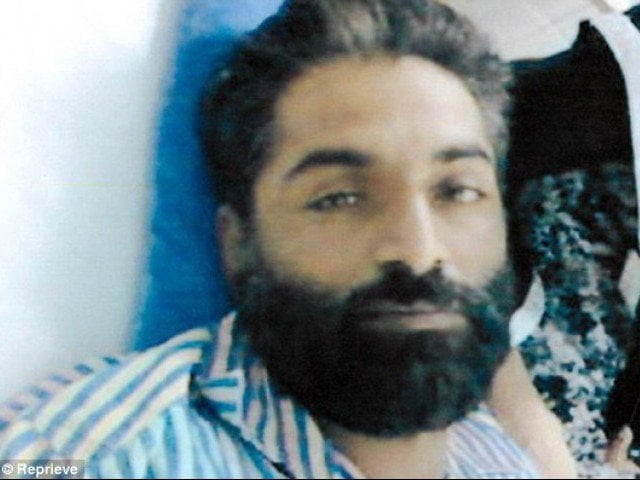A cruel dilemma
There is no protocol attached to hanging a man who is in a wheelchair and cannot ascend the gallows himself

Condemned: Abdul Basit, 43, was convicted of murder in 2009 but a bout of tuberculosis while detained in Faisalabad Prison the following left him paralysed from the waist down. PHOTO COURTESY: REPRIEVE

The moratorium on the death penalty was cancelled in the wake of the Army Public School massacre last December. As of June 2015, there are around 1,500 people on death row, about 1,000 of whom have had their appeals rejected. Far from the current round of executions being of those described as ‘hardened terrorists’, the majority executed thus far have been ‘ordinary’ criminals, unconnected to terrorism in any way. Many of those executed were convicted many years ago in circumstances that may suggest that there was a miscarriage of justice, so flawed were their trials. It is not inconceivable that completely innocent people have been hanged to death. The death penalty offers no deterrent to terrorists anyway, who for the most part welcome ‘martyrdom’.
Whether Abdul Basit is truly guilty as charged appears also to be open to question, and if there is the slightest suspicion that a conviction that carries the death sentence has any shred of doubt about it, then the execution should not go ahead. Local and international human rights organisations have called for the reinstatement of the moratorium and the commutation of his sentence to life imprisonment for Abdul Basit. Thus far, the government has been deaf to all such calls, and if it can find a way to legally execute him, then unfortunately, in all probability it will.
Published in The Express Tribune, September 24th, 2015.
Like Opinion & Editorial on Facebook, follow @ETOpEd on Twitter to receive all updates on all our daily pieces.















COMMENTS
Comments are moderated and generally will be posted if they are on-topic and not abusive.
For more information, please see our Comments FAQ